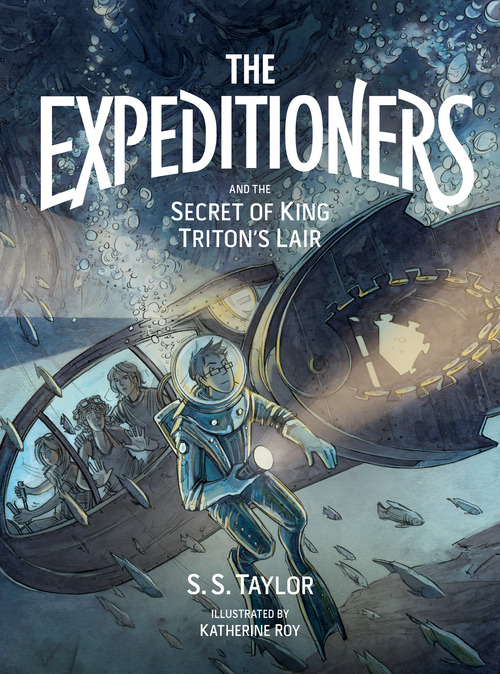 Great news for fans of S. S. Taylor’s The Expeditioners! The second book is out! OK, officially, The Expeditioners and the Secret of King Triton’s Lair will be published on September 23, but Barnes & Noble says that it’s already shipping. So, I would guess that you can order it now – from there or (preferably!) your local bookseller. If you have not read the first book, The Expeditioners and the Treasure of Drowned Man’s Canyon (2012), well, you’ll want to start there, of course. And then –Â lucky for you –Â you can dive right into book two!
Great news for fans of S. S. Taylor’s The Expeditioners! The second book is out! OK, officially, The Expeditioners and the Secret of King Triton’s Lair will be published on September 23, but Barnes & Noble says that it’s already shipping. So, I would guess that you can order it now – from there or (preferably!) your local bookseller. If you have not read the first book, The Expeditioners and the Treasure of Drowned Man’s Canyon (2012), well, you’ll want to start there, of course. And then –Â lucky for you –Â you can dive right into book two!
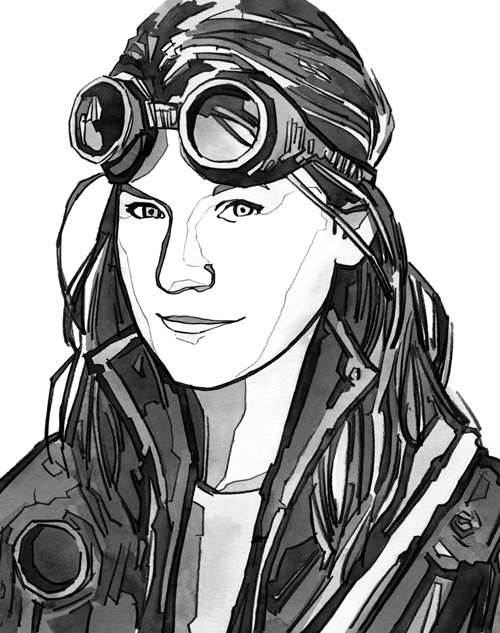 S.S. Taylor kindly took the time to chat with me about The Expeditioners, via Gmail chat, earlier today. At only one point did I mention a spoiler, but I’ve blotted out that sentence so that you’ll need to select the text in order to see what it says. In addition to discussing her influences, her thoughts on dystopias, and other matters, I also learned that the Expeditioners will be more than a trilogy. So, that’s even better news for fans of the first book!
S.S. Taylor kindly took the time to chat with me about The Expeditioners, via Gmail chat, earlier today. At only one point did I mention a spoiler, but I’ve blotted out that sentence so that you’ll need to select the text in order to see what it says. In addition to discussing her influences, her thoughts on dystopias, and other matters, I also learned that the Expeditioners will be more than a trilogy. So, that’s even better news for fans of the first book!
Enough prologue. Here’s our conversation.
Philip Nel:Â Â Thanks for taking the time to chat about The Expeditioners!
S.S. Taylor:Â Â Thank YOU!
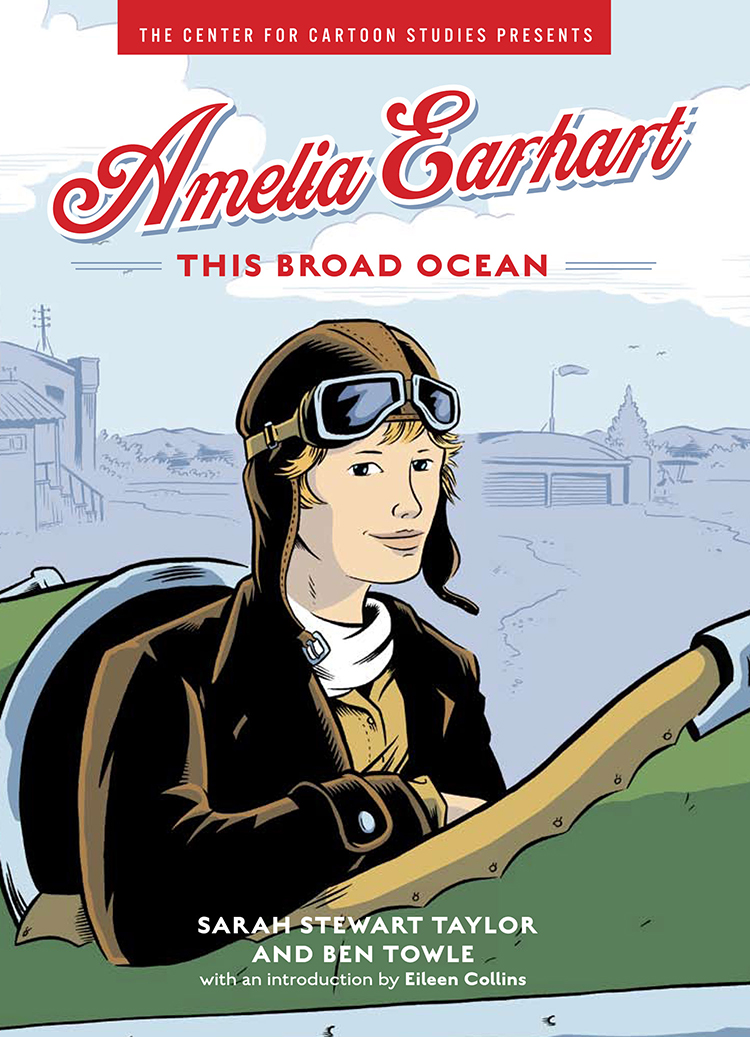 Nel:Â Â My pleasure! Â First question. Â Prior to The Expeditioners, you wrote mysteries, and a graphic novel about Amelia Earhart. Were there any ways in which those writing experiences prepared you for this one (if, indeed, they did)?
Nel:Â Â My pleasure! Â First question. Â Prior to The Expeditioners, you wrote mysteries, and a graphic novel about Amelia Earhart. Were there any ways in which those writing experiences prepared you for this one (if, indeed, they did)?
Taylor:Â Â Absolutely. I think I’ve always liked writing about ordinary people who have extraordinary things happen to them. That’s pretty much the definition of an amateur detective novel and Amelia Earhart sort of fits that bill too. She was a social worker before she became a famous pilot.
Nel:Â Â Ah. Good point. Even real-world extraordinary people (often) start as ordinary people. We just forget that fact because we only know them — or, really, know of them — because of their extraordinary achievements.
Taylor:Â Â Exactly. That was what drew me to the early part of Amelia’s career, which I focus on in the graphic novel. She (and we) didn’t know who she was going to be yet. And obviously adventure novels for kids are about extraordinary things happening to kids, which is every kid’s fantasy. Even though Kit’s father was an Explorer, he is surprised at being drawn into this crazy adventure.
Nel:Â Â Right, right. And you really get the sense in The Expeditioners and the Secret of King Triton’s Lair that — hmmm, I want to phrase this in a way that isn’t a spoiler — as in a classic fantasy narrative, there are people who are “chosen” to follow certain paths.
(Incidentally, if we do get into any “spoiler” territory, I can just reproduce that part of the interview so that people have to select the text in order to read it.)
Taylor:Â Â Yeah. It’s a trope, but for good reason. I think every kid — I know I did — feels like she doesn’t know what she’s supposed to DO, what her purpose it. Do I matter? Why am I here? All that great existential stuff that comes up around age 10 or 11 or 12. And characters who discover that they are meant for great and important things let kids try on a huge and important destiny, if that makes sense, while they figure out what their real one is.
Nel:Â Â Heck, I think many adults feel like they don’t know what they’re supposed to do. “Do I matter? Why am I here?” I ask those questions all of the time.
Taylor:Â Â Me too!
Nel:Â Â Well, perhaps one day we’ll grow up and find our destiny, eh?
Taylor:Â Â Wouldn’t it be nice if someone just said, “You? Oh you’re supposed to save the world from evil”?
Nel:Â Â Would it? Â That sounds terrifying.
Taylor:Â Â But clear!
Nel:Â Â True. Clear and terrifying! Â A winning combination! Â Well, if you survive….
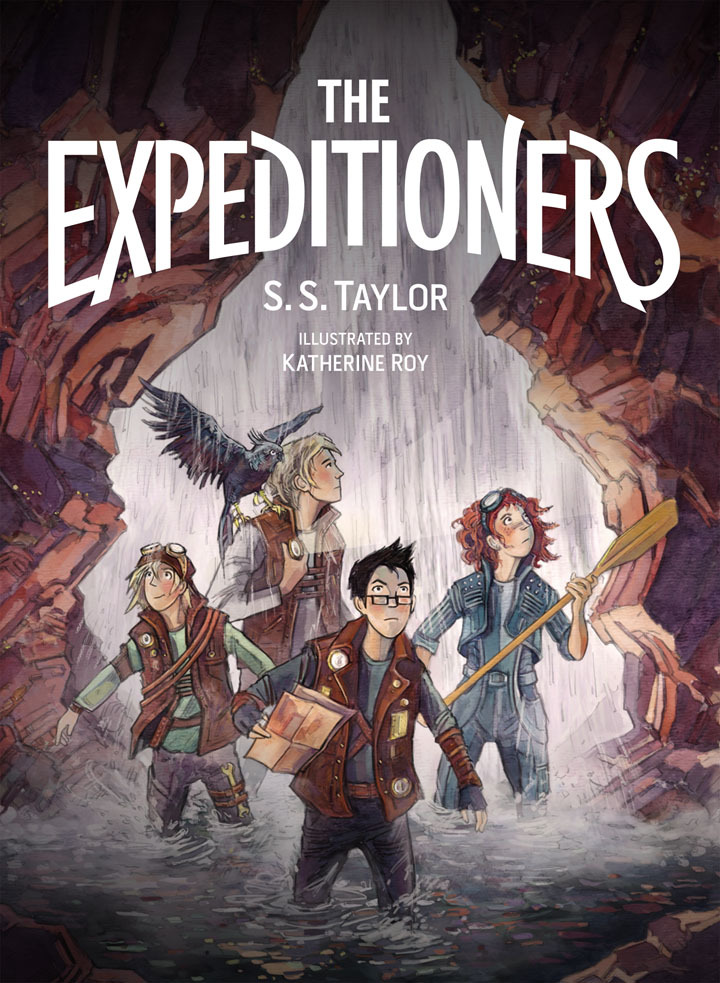 So, speaking of combinations, I wonder if you think in terms of genre at all. Â Do you? Â I ask because, if I had to classify these novels, I’d say they’re steampunk adventure fantasy mysteries, with a bit of science fiction, too. Â (I love the attention given to the alternate world’s technology.) Â They don’t neatly fit into one genre, and I like that. But, as a writer, do you worry about these labels?
So, speaking of combinations, I wonder if you think in terms of genre at all. Â Do you? Â I ask because, if I had to classify these novels, I’d say they’re steampunk adventure fantasy mysteries, with a bit of science fiction, too. Â (I love the attention given to the alternate world’s technology.) Â They don’t neatly fit into one genre, and I like that. But, as a writer, do you worry about these labels?
Taylor:Â Â I started out thinking of them as straight-up adventure novels. But I discovered that a lot of the things I wanted to say about the world put it firmly in SF and steampunk territory. It’s funny because I think a lot of the inspiration came out of my interest in colonialism and imperialism and sort of trying to reimagine the age of exploration with a more contemporary view of colonialism and imperialism but in order to do that, I needed to create this futuristic, SF world.
I don’t think I’m capable of writing anything that doesn’t have a mystery in it.
Nel:Â Â Ah! I was picking up on that anti-colonialist / anti-imperialist bent. Â I love it when Coleman says, “I don’t say ‘discovered’ because as far as the Arawak people who were living here were concerned, they didn’t need to be discovered. They’d been here for a long time. They hadn’t wanted to be found.”
Taylor:  A long way of saying that I don’t worry much about labels. I still describe them as adventure novels. I love Katherine Roy‘s illustrations for the book and I think she’s done such a great job of capturing that mix of genres, of old-fashioned adventure stories, but also the steampunk and SF elements.
Nel:  I’m glad you mention Roy’s art – love her work, too. Perfectly compliments your text. And, returning to what you said a moment before, having the mystery gene (if that’s what it is) is a great gift, I would think — because that sense of mystery keeps people turning the pages.
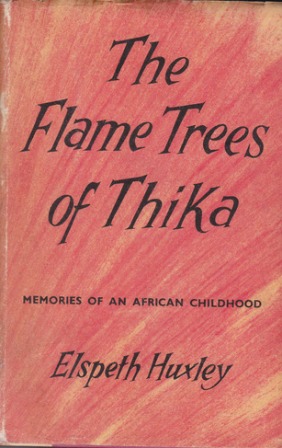 Taylor:Â Â Yeah, I loved novels like The Flame Trees of Thika and Agatha Christie as a kid and I think this is my attempt to retain some of the romance of that literature, but to hopefully ask the questions that will make readers think about what it is to be the colonized person.
Taylor:Â Â Yeah, I loved novels like The Flame Trees of Thika and Agatha Christie as a kid and I think this is my attempt to retain some of the romance of that literature, but to hopefully ask the questions that will make readers think about what it is to be the colonized person.
Nel:Â Â Nicely put. I was thinking of these as like classic adventure narratives from the early twentieth-century, but with a critique of colonialism instead of a passive (or active) endorsement. The first Expeditioners novel, too. They “find” this “lost” civilization, but have the good sense to let it stay lost. Â OK, that’s a spoiler to anyone who’s not read the first book. Â I’ll blot that out.
Taylor:Â Â Yup. I was just reading about uncontacted people in the Amazon and how the Brazilian government is grappling with how to protect them. It’s so complicated.
Nel:Â Â Indeed. That also brings me to another question I have. What sort of research do you do in creating the world of The Expeditioners? The world of Philip Pullman’s His Dark Materials was heavily influenced by the research he did into Victorian England for the Sally Lockhart books. I would guess that research on Amelia Earhart may have helped with Sukey (especially in the first book). But I’m going to guess there was a fair bit of research involved for the rest, yes?
Taylor:Â Â Yeah. I did some research on Victorian technology, steam, clockwork mechanisms, etc., but also on the early days of petroleum exploration. I think it was more casting my imagination into this alternate world though, and saying, “Okay, if petroleum hadn’t been discovered in great quantities yet, what would have been available to people?” I also did a lot of research into fascist/totalitarian governments and how they did things, how they created bureaucracy. That was fun
And I read a lot about the golden age of exploration, trying to imagine if it had happened later than it did.
Nel:Â Â Fun with fascism! (Well, in a fictional sense.) Indeed, if I had to add another genre to my “genre” mix, above, I notice a dystopic strain running through the Expeditioners books – food shortages, oligarchical / totalitarian government. If you’re doing research into fascist/totalitarian governments, I assume you’re conscious of that strain(?). If so, were there any particular dystopian works that inspired you?
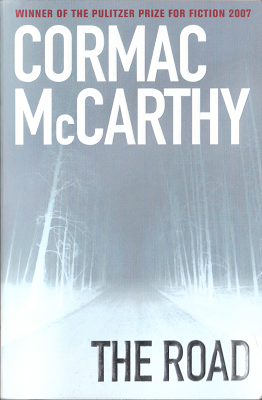 Taylor:Â Â Yeah. Like everybody else, I loved the Hunger Games, though I read it after I’d mostly written the first book. I loved The Road, by Cormac McCarthy, and I’m sure that was an influence. I’ve now read some more YA dystopia, and I find it really interesting that kids are so drawn to it. Lots of people have written about this, but I think it’s both a reflection of their anxiety and maybe also some sort of desire for a fresh start or to be able to remake the world.
Taylor:Â Â Yeah. Like everybody else, I loved the Hunger Games, though I read it after I’d mostly written the first book. I loved The Road, by Cormac McCarthy, and I’m sure that was an influence. I’ve now read some more YA dystopia, and I find it really interesting that kids are so drawn to it. Lots of people have written about this, but I think it’s both a reflection of their anxiety and maybe also some sort of desire for a fresh start or to be able to remake the world.
I think there’s something attractive to kids about a world where the usual rules don’t apply and you get to make your own, form a society.
Nel:Â Â Yes, I’m also interested by the current popularity of dystopian fiction. As you say, it’s likely a reflection of contemporary anxieties about the world. I also wonder what dystopian fiction’s popularity (especially YA dystopian fiction) tells us about how we imagine our collective futures.
Taylor:Â Â Yeah, when I talk to kids, I actually see that they find these stories exciting because they make adventure and freedom possible. After a nuclear holocaust, nobody cares whether you make your curfew or not! I think so much of children’s lit is about vicariously experiencing freedom and independence.
Nel:Â Â I like your optimistic reading — dystopia can also provide the impetus to challenge the rules, to create a new and better world. Â So, you know, the West kids & others are completely justified in defying authority because the authorities are corrupt.
Taylor:Â Â Yes!
Nel:Â Â So, I don’t have a natural transition to this question, but one thing I really enjoy about the novels is that they avoid gender stereotypes. M.K. (the youngest West child) is an inventor & engineer. Kit, our narrator and the middle West child, is introspective. Â Sukey is brave. Â So is Joyce. Â Indeed, they all have a combination of strengths and weaknesses that aren’t especially gendered. Even the pirates — Monty Brioux has both men and women on his crew. How conscious are you of avoiding stereotypes?
Taylor:Â Â Very conscious, though I think you have to be conscious of not being too conscious, if you know what I mean. They have to be themselves first. Part of creating an alternate world for me was about creating a world where there is less rigidity about gender roles. One of the things about having kids of my own that has been such an eye opener is how gender roles are transferred so early. I especially wanted to show girls who are capable and brave and mechanically minded, but I realized I also wanted the boys to have flexibility. That may be part of why Kit is the first person narrator.
So yeah, I’m very conscious of it and I’m happy to see that many other writers seem to be. There are a lot of brave, capable heroines on the shelves right now.
Nel:Â Â Even the names give you flexibility. Â M.K. is a girl, but the initials don’t tell you that. Â And, when I started reading The Expeditiioners and the Secret of King Triton’s Lair, I’d forgotten whether Kit was a boy or a girl. Â It took me a few pages, before a pronoun tipped me off!
Taylor:Â Â Yeah, I’m inside his head and I really want to show his emotions and insecurities as well as his developing competence and bravery.
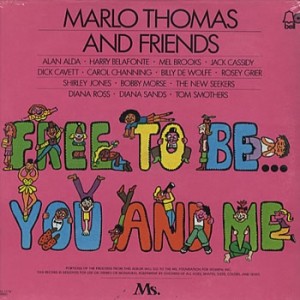 Nel:Â Â Excellent! Those are helpful to see, and (since I was an insecure kid, myself), I know I’d have liked that when I was a younger reader, too. Â Oh, I like your point, also, about being “conscious of not being too conscious.” Â You don’t want it to seem forced (and it doesn’t!). Â But, you know, since you grew up with a consciousness of gender roles — or conscious of their existence — perhaps that sort of non-stereotypical writing comes more easy to you than it may have come to writers of earlier generations? Â Out of curiosity, were you a Free to Be … You and Me kid? Â Did you grow up on that record or book?
Nel:Â Â Excellent! Those are helpful to see, and (since I was an insecure kid, myself), I know I’d have liked that when I was a younger reader, too. Â Oh, I like your point, also, about being “conscious of not being too conscious.” Â You don’t want it to seem forced (and it doesn’t!). Â But, you know, since you grew up with a consciousness of gender roles — or conscious of their existence — perhaps that sort of non-stereotypical writing comes more easy to you than it may have come to writers of earlier generations? Â Out of curiosity, were you a Free to Be … You and Me kid? Â Did you grow up on that record or book?
Taylor:Â Â Yes. Free to Be … You and Me, marching at ERA rallies, the whole deal. I think those of us who grew up in the 70s and 80s had a better situation than kids do today, to some extent. Certainly the merchandizing has changed.
Nel:Â Â A couple of final questions because I’ve just realized we’ve been chatting for nearly an hour. Â For how long had you been planning The Expeditioners, and was it always a trilogy? Â How much of the story did you know when you began, and how much do you discover as you write?
Taylor:Â Â It’s actually a six-book series! It says trilogy somewhere but that’s not right. I had been thinking about it for maybe a year before I started writing, not terribly long. The first book really was a process of discovery. The second book was hard to write because I was actively figuring out the whole rest of the series in order to write it. I now know most of it, but I didn’t until I was about halfway through the second one.
Nel:Â Â Oh boy! Â Six books! Â Well, that’s the best news I’ve had all week. Â I thought there were going to be just three. Â Hooray!
Taylor:Â Â I’m glad that’s your reaction!
Nel:Â Â Well, of course it is! Â You see, Sarah, it is your destiny to write these novels. Â YOU are the one chosen to do it.
Taylor:Â Â Thank you. I feel very relieved now!
Nel:Â Â Glad I could help you sort that out. :-) Â One final question and then I’ll let you go (promise!). Can you tell your avid readers when we might expect to see The Expeditioners, Volume 3?
Taylor:  I’m working on it right now. I’m so excited about it. There’s espionage and a trek across a desert and  . . . I can’t say anything more. But, we think it will be out in spring of 2016, if all goes according to plan.
Nel:Â Â Hoo boy! Â Looking forward to it! Â Thanks so much for taking the time to chat!
Taylor:Â Â Thank you so much. I really appreciate it!
Nel:Â Â My pleasure!

hi
Carson
Rob Schultz
A Hime